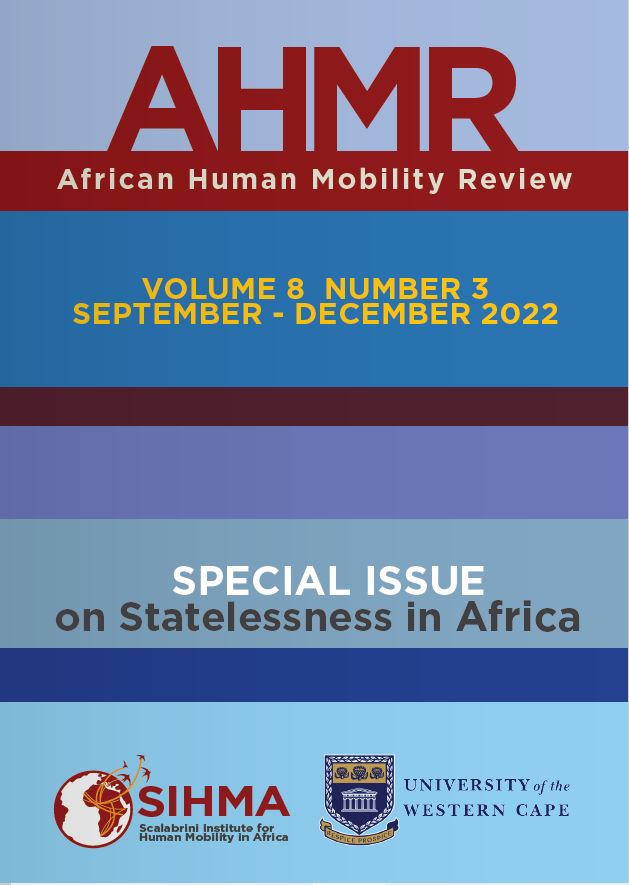Main Article Content
Statelessness, Development, and Protection of ‘Disadvantaged Groups’: Bridging the Post-2030 Sustainable Development Gaps
Abstract
Statelessness constricts development opportunities, human capital, and the potential of affected communities and persons over successive generations. The marginalisation of stateless persons, deprivation of their basic rights, legal recognition, and access to essential services further induce their vulnerability and the risk of intergenerational statelessness. Unfortunately, the nexus between statelessness and development remains poorly investigated amid the lack of coherent measures to address it. Hence, the need to understand how global, regional, or national development policies, programmes, and processes often constrict stateless persons and communities. The paper argues that mismatches in the implementation of multilateral development programmes and national policies increase deprivation by statelessness and its conditions of vulnerability, suspicion, and exclusion of affected persons and communities. Although not explicitly encapsulated to address statelessness, the Sustainable Development Goals (SDGs) unlock significant opportunities, with relevance and applicability of some of the goals. Therefore, incorporating statelessness into the post–2030 development agenda is critical for addressing its challenges, and improving the human security and conditions of stateless persons.




